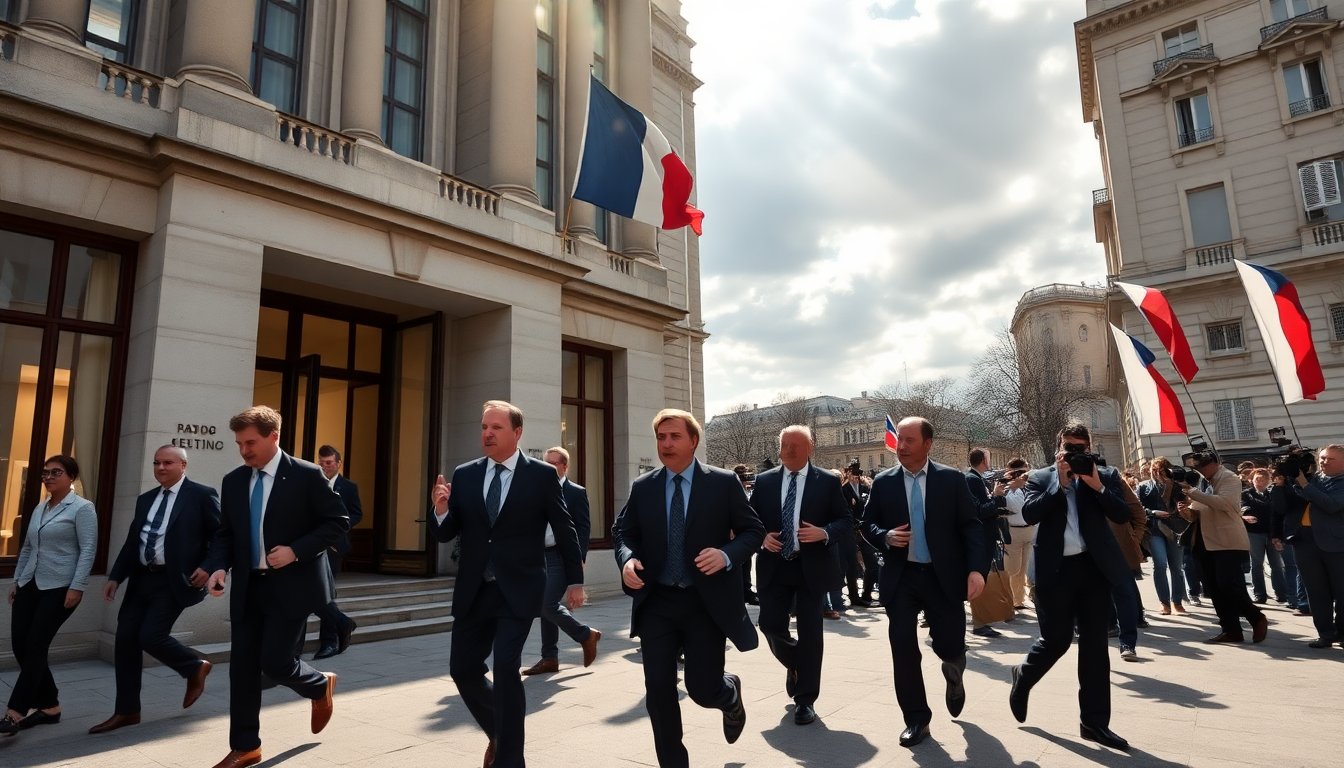Table of Contents
Here are the facts: the newly appointed government in France has resigned only 12 hours after taking office. This rapid departure underscores the ongoing instability within the French political landscape. Prime Minister Sébastien Lecornu and his cabinet left their positions almost immediately following their selection. This incident marks the fifth government to collapse in three years, highlighting the challenges faced by President Emmanuel Macron since his reelection in 2022.
The facts
The resignation of a key political figure has ignited significant backlash among various political factions. Opposition parties and some members of President Macron’s minority coalition are particularly vocal. They have criticized the new government’s composition, which features several ministers from the previous administration. This continuity raises concerns about the potential for meaningful policy change following the leadership shift.
The consequences
Political analysts suggest that this reaction could hinder the government’s ability to implement its agenda. Critics argue that retaining familiar faces within the cabinet may prevent innovative approaches to pressing issues. The situation has created a divide among parties, complicating the political landscape in France.
Political reactions
Critics express frustration over the rapid resignation of Lecornu’s government, suggesting it reflects a lack of confidence in President Macron’s leadership. Opposition members have targeted not only the resignation but also the selection of ministers for the new cabinet. The retention of many officials from the previous administration has led to disillusionment among those who anticipated fresh leadership and innovative policies.
The context of Lecornu’s appointment
At 39 years old, Lecornu has taken on the challenging role of guiding France through a financially unstable period. He assumed this position a month ago, with a primary mission to create a streamlined budget aimed at reducing the country’s budget deficit. This effort seeks to reassure financial markets and demonstrate that the second-largest economy in the eurozone remains stable and governable.
Challenges faced by the new government
The economic situation in France has been volatile, raising concerns about the nation’s fiscal health. In this difficult environment, Lecornu’s government was expected to present a budget plan designed to reassure stakeholders and restore confidence in the country’s economic management. However, the recent resignation of the entire cabinet casts significant doubt on the future direction of fiscal policy and governance.
The implications for France’s political future
The resignation of Prime Minister Lecornu’s government is expected to significantly impact the French political landscape. Lecornu’s departure marks the fifth change at the helm under President Macron in less than two years. This rapid turnover underscores the challenges Macron faces in maintaining unity within his coalition and navigating a divided parliament. The ongoing political instability may encourage opposition parties to intensify their efforts against the current administration.
As political tensions escalate, attention turns to who will be appointed next and what measures they will take to regain public and investor trust. The recurring pattern of government resignations signals a pivotal moment in French politics, suggesting a need to reassess political alliances and strategies for the future.
The rapid resignation of Prime Minister Lecornu and his cabinet has sparked significant political debate in France. This situation highlights the instability of governance in the country. As the public closely monitors developments, potential candidates for the next prime minister face the challenge of addressing voter concerns while ensuring economic stability.


